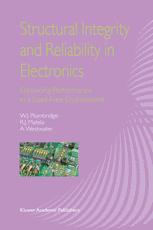

Most ebook files are in PDF format, so you can easily read them using various software such as Foxit Reader or directly on the Google Chrome browser.
Some ebook files are released by publishers in other formats such as .awz, .mobi, .epub, .fb2, etc. You may need to install specific software to read these formats on mobile/PC, such as Calibre.
Please read the tutorial at this link: https://ebookbell.com/faq
We offer FREE conversion to the popular formats you request; however, this may take some time. Therefore, right after payment, please email us, and we will try to provide the service as quickly as possible.
For some exceptional file formats or broken links (if any), please refrain from opening any disputes. Instead, email us first, and we will try to assist within a maximum of 6 hours.
EbookBell Team

0.0
0 reviewsKnowledge itself is soon obsolete; It is a blunt instrument. Only by understanding can problems be solved and progress achieved. Reliability in performance of electronic equipment, in the face of demands for continuing miniaturisation and the anticipated abolition of lead containing solders, represents a major engineering challenge. The involvement of numerous disciplines; such as electrical, electronic, mechanical, manufacturing, and materials engineering together with physicists and computer specialists, adds to the complexity of the situation. Nevertheless, with electronics being the World's largest industrial sector, the potential rewards to the winners are substantial. This book aims to provide the ingredients for understanding, together with knowledge of reliability in interconnection technology and of the implementation of lead free solders. It is strongly contended that such a combination forms the necessary basis for greater structural integrity and enhanced performance The text is essentially in three parts: The intentions of the Part I component {The Materials Perspective, Chapters 1 6) are to present a snapshot of the current, but rapidly changing, global scene and to establish a firm understanding of the fundamentals surrounding interconnection performance. With potential readers possessing a broad spectrum of knowledge and expertise, this is essential. It could be argued that the reason for the limited progress made in this field to date has been due to the difficulties encountered in communicating effectively across the discipline boundaries.